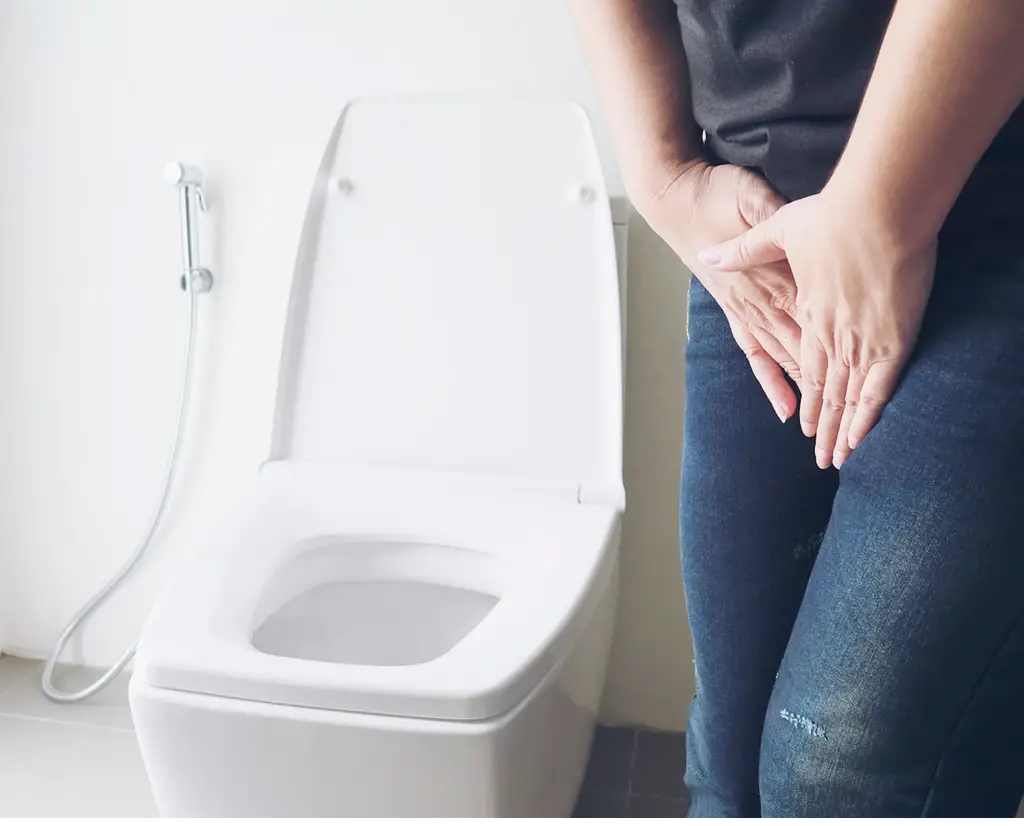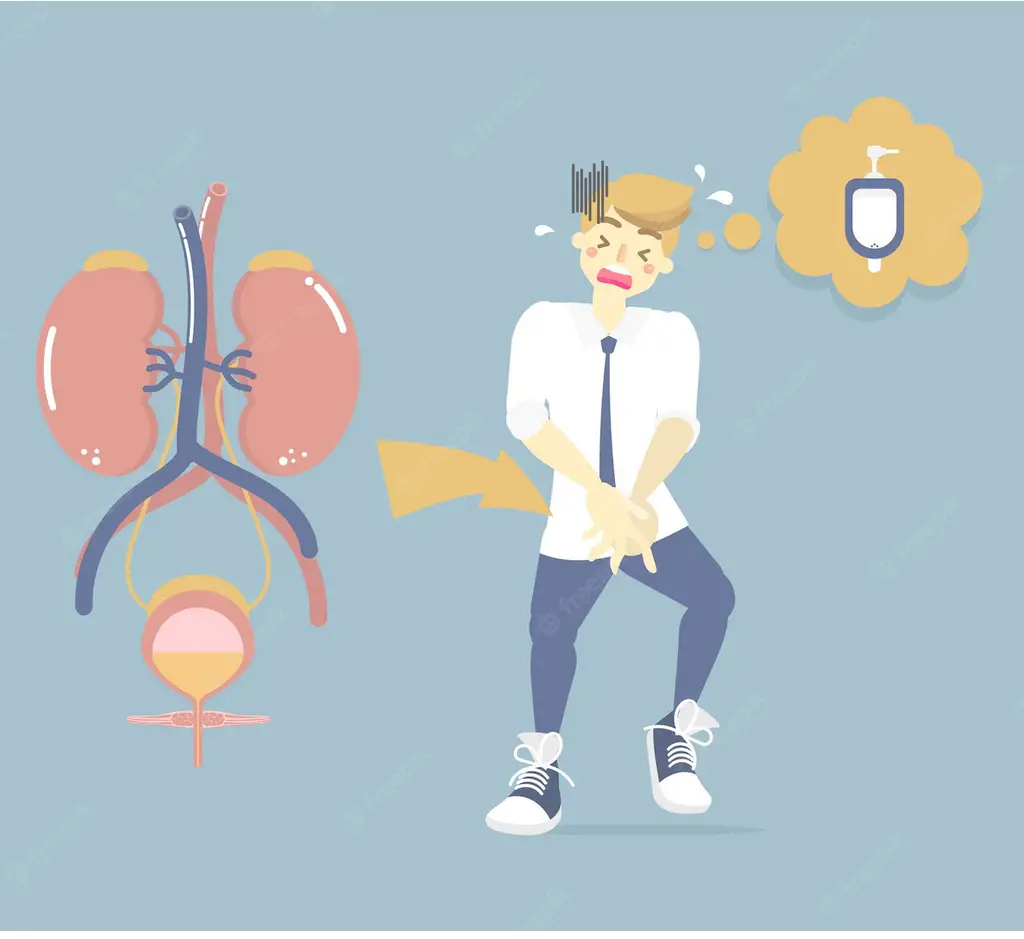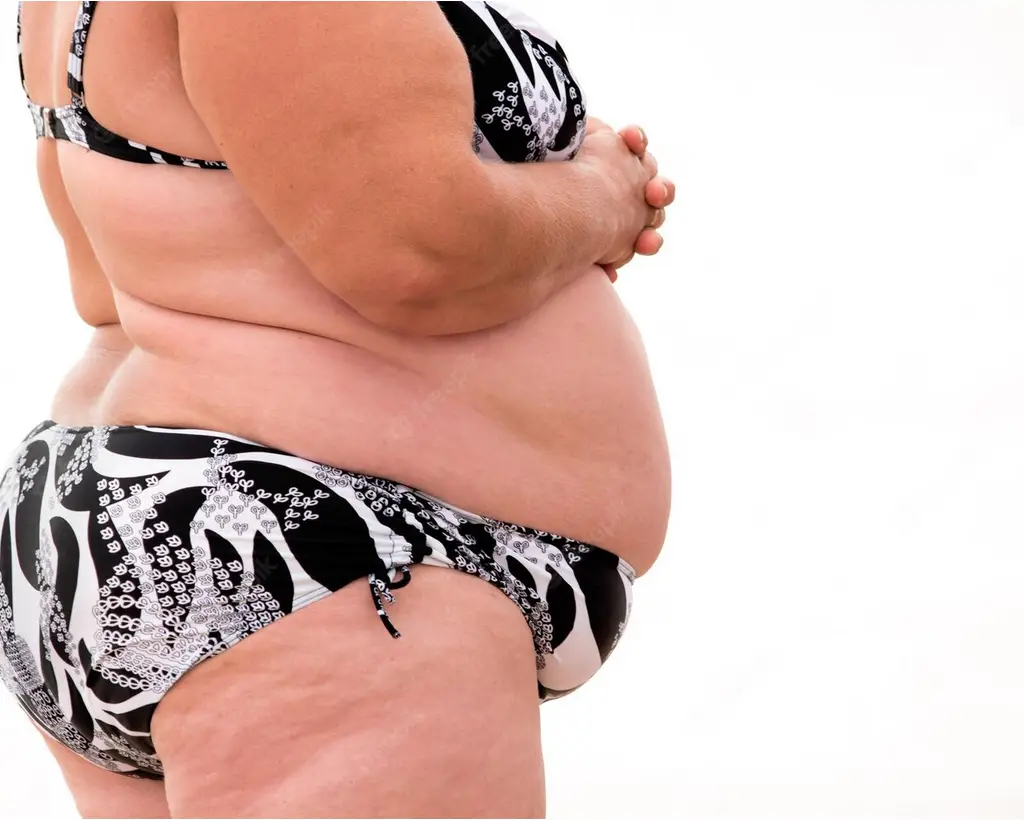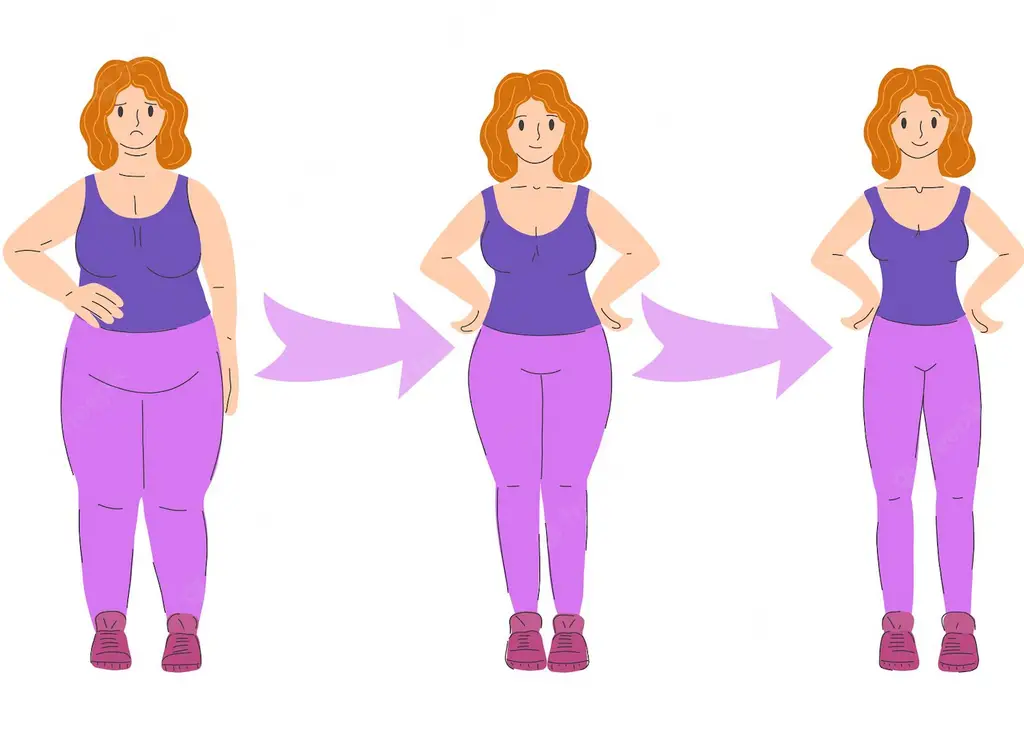We’ve all heard of fat being bad for the body: it causes diabetes and heart problems, makes us tired, and increases our blood pressure.
But did you know that your sneaky belly fat can also cause you to go to the bathroom more often? If you’ve put on a few extra pounds around your middle, you may be wiser to pay attention to just how much of your stomach spills over your pants and whether it’s accompanied by accumulating fat around your hips.
Can belly fat cause bladder problems? If you have ever had incontinence issues and wondered if it was related to your weight, then read on to find out whether or not your belly fat causes bladder problems and how you can get rid of them.
In case You Missed
What Are Some of the Common Bladder Problems?

Urinary incontinence is the involuntary loss of urine. It can be caused by an inability to store or hold urine, an overactive bladder, or muscle spasms in the pelvic floor.
Urinary retention is a condition where you cannot empty your bladder completely and have difficulty going to the bathroom.
Overactive bladder symptoms include sudden urges to urinate and frequent urination.
Spastic bladder causes recurring spasms that cause partial emptying of your bladder at times when you are not even trying to go to the bathroom (also known as urge incontinence).
Urolithiasis is a medical condition where stones form in your urinary tract (the organ system that drains urine from your kidneys). These stones may lodge anywhere in this system, including the kidneys and ureters (two tubes that carry urine from each kidney), bladder, or urethra (tube connecting genitals with outside).
Bladder cancer can develop from these tumors if they become malignant or cancerous over time. Bladder inflammation affects both men and women differently because it affects their bodies differently depending on their gender; however, both sexes can experience this symptom during different stages of life, including childhood, adolescence, adulthood, and old age.
What Is Urinary Incontinence?

Urinary incontinence, or the involuntary loss of urine, is a common problem that affects many mean and women. Urinary incontinence can be caused by childbirth, pregnancy, and menopause. It may also result from having a stroke or drinking too much alcohol.
The most common types of urinary incontinence are stress incontinence and urge incontinence.
Stress Incontinence
Stress incontinence is when a person leaks urine involuntarily, usually during exercise or physical activity. This type of urinary incontinence is caused by weakened muscles in the pelvic region that support the bladder and urethra (the tubes that connect your kidneys to your bladder).
As you age, these muscles become less elastic and more prone to injury, which leads to stress urinary leakage. Your doctor might recommend lifestyle changes such as losing weight or decreasing your caffeine intake if you have this kind of leakage; in some cases, surgery may be needed.
Urge Incontinence
Urge incontinence occurs when you feel an overwhelming need to urinate at unpredictable times throughout the day (like after meals) even though there’s not much urine left in your bladder once those urges occur—which means it’s likely due to an overactive bladder muscle rather than weak pelvic floor muscles like with stress urinary leakage!
Can Belly Fat Cause Bladder Problems?

Excess abdominal fat can cause or worsen urinary incontinence, which is when you involuntarily leak urine from your bladder. One way this can happen is by stretching the muscles around your bladder, causing them to weaken and prolapse (move out of place).
This causes a “bulge” of tissue that can contribute to incontinence by stopping the bladder from being able to hold as much fluid. As a result, you may need to go more often or leak urine when coughing or sneezing.
Abdominal obesity also increases pressure on your kidneys and ureters (the tubes that carry urine from your kidneys to your bladder), which could make it harder for these organs to do their jobs properly.
Can Belly Fat Cause Frequent Urination?
Belly fat is one of the most common causes of frequent urination. When you have a lot of fat around your midsection, it makes it more difficult for your bladder to hold urine.
This causes frequent bathroom trips and can lead to overactive bladder and urinary incontinence as well. If left unchecked, this condition can also contribute to other health issues like diabetes and heart disease.
To prevent belly fat from interfering with your ability to hold urine all day long:
- Drink plenty of water throughout the day (8 glasses). Make sure you’re drinking enough water throughout the day so that you’re not getting dehydrated when you’re in public or at work. Dehydration makes it harder for your body to hold onto urine, which could cause an overactive bladder episode if not corrected right away!
- Exercise regularly (exercising every morning will help). Exercising helps burn off excess calories that collect around our midsections each day while also strengthening our pelvic muscles, so they aren’t too weak when we need them most – like during childbirth!
Can Weight Loss Help Treat Urinary Incontinence?

If you’re struggling with urinary incontinence, losing weight may help. But it could also reduce the risk of developing other obesity-related diseases and improve your overall health and quality of life.
If you’re considering losing weight to treat your urinary incontinence, talk to your doctor first. Your doctor will consider how much weight you need to lose in order to make improvements in treating your condition.
Weight loss isn’t an instant fix for urinary incontinence. It’s a long-term solution that can take months or even years, depending on an individual’s starting point for their body mass index (BMI), which is based on height and weight measurements.
What Does Research Say?
Hagovska et al. embarked on a study to determine “The Relationship between Overweight and Overactive Bladder Symptoms.” The authors employed a cross-sectional investigation of the correlation between obesity and overactive bladder symptoms over six months.
The study focused on female university students from two universities, with 7,943 participants selected to complete a screening questionnaire on their BMI. Of the 7,943 women, 1,932 overweight women (BMI 25–29.9) were enrolled in the study. Out of the 1,932 women, 293 were randomly selected through sampling.
The study effectively used descriptive and analytical tools, which helped establish the results. The results showed that women with body fat percentage (BFP) greater than 32% had higher overactive bladder (OAB) than those with BPF less than 32%.
Increasing BFP worsened OAB symptoms hence the need to adjust the dietary needs of overweight women.
The study was well conducted, especially the enrollment of participants, which helped remove any form of bias. The selection criteria were clear, with both inclusion and exclusion criteria defined.
Using a third party in the sampling (an independent person who did not participate in the study) significantly eliminated researcher bias, ensuring that only correct data was available (Hagovska et al., 2020).
The number of participants was also significant to the study sample used adequately to provide significant results. The employment of objective evaluation allowed the study to be more effective and to provide conclusive information.
The study focused on the relationship between overweight and overactive bladder symptoms and effectively established the results through appropriate analysis.
However, the study did not compare overweight and normal weight individuals to properly establish a correlation between overweight and overactive bladder symptoms. Comparison groups provide a better understanding of the correlation and provide relevant results.
The limitations of the study did not have great generalizability. However, I do not think it had a significant effect on the results. Doing a longitudinal study can be recommended to better understand confounding factors and other changes that may be involved.
Treatment Options for Overactive Bladder
Your doctor may recommend one or more of the following treatments:
Medication
If you have an overactive bladder caused by a medical condition, your doctor will likely prescribe medication to control the urination problem. Some examples of medications that can help include antihistamines and anticholinergic drugs.
These drugs act by blocking the nerve signals that cause contractions in your bladder muscles, reducing their frequency and intensity.
Surgery
In some cases, surgery is an option for treating overactive bladder syndrome (OAB). If you have severe symptoms that fail to respond to other treatments (such as medications), your doctor might recommend surgery as part of a comprehensive treatment plan for OAB-related conditions such as bladder stones or urinary tract infections (UTIs).
Pelvic Floor Muscle Training (PFMT)
PFMT involves learning specific exercises meant to strengthen the pelvic floor muscles—the ones you use when holding in urine—and practicing them regularly until they become second nature.
Your health care provider can teach you how to do these exercises correctly and give guidance on how often they should be done if necessary; however, most people don’t need any monitoring from their doctors once they’ve been taught how properly perform these exercises at home without supervision).
Frequently Asked Questions
Does belly fat put pressure on your bladder?
Belly fat puts pressure on your bladder, which makes it harder to empty. This can cause incontinence (when you leak urine) or urine leakage when you cough, sneeze or lift something heavy. If you’re overweight or obese, losing just 10 percent of your body weight can help ease the pressure on your bladder and improve your ability to control urination.
Does being fat affect your bladder?
Being overweight or obese can affect the bladder in a number of ways. Being overweight and obese are risk factors for urinary incontinence, especially stress incontinence. Being overweight may also increase your risk of developing other types of urinary problems. For example, people who are overweight or obese have a higher incidence of kidney stones than people who are not overweight or obese. Kidney stones occur when salts and minerals build up in the kidneys and form crystals that block the outflow of urine from your kidneys into your bladder.
What are the signs that something is wrong with your bladder?
If you have a bladder problem, you may experience some of the following symptoms: Urinary frequency — You feel the need to urinate more often than usual or your urine stream is weak. Urinary urge incontinence — You can’t hold back your urine. This may happen when you’re laughing and sneezing or making sudden movements. Urinary urgency — You feel an intense urge to urinate, so it’s difficult for you to stop yourself from going. Inability to empty the bladder completely — Even though you feel like your bladder is empty, it isn’t because the muscle that closes off the bladder has weakened (detrusor overactivity).
Does weight loss improve bladder control?
The answer to this question is yes, losing weight will help improve bladder control. However, it’s important to understand that there are many factors that can contribute to incontinence, and each individual may have different causes and solutions. Losing weight can loosen the pelvic floor muscles and increase their strength. This can help reduce stress incontinence and even urge incontinence in some cases. Losing weight can relieve pressure on the bladder, which may also reduce stress incontinence and urge incontinence in some cases.
Conclusion
If you have a lot of belly fat, it can compress your bladder. This means that you will be more likely to leak urine when you cough or sneeze and that the bladder may need to empty more frequently as well.
Urine consists of water, urea, uric acid, and other chemical compounds such as sodium chloride and potassium chloride. When there is too much fluid in the body because of excess weight or fluid retention, it increases the pressure inside your abdomen, which can lead to bladder problems such as frequent urination or difficulty in emptying the bladder completely.
This may also cause an increased risk for UTIs as bacteria from urine can enter your bloodstream easily through these openings in your bladder.
If you notice any of these symptoms, talk with your doctor about treatment options for your belly fat because they may be able to help reduce the pressure on your bladder!
References
- How Weight Loss Can Help Treat Urinary Incontinence: https://www.verywellhealth.com/health-risks-of-obesity-incontinence-3496284
- Urinary Incontinence: https://www.mayoclinic.org/diseases-conditions/urinary-incontinence/symptoms-causes/syc-20352808
- Urinary Retention: https://www.niddk.nih.gov/health-information/urologic-diseases/urinary-retention
- Overactive Bladder: https://www.mayoclinic.org/diseases-conditions/overactive-bladder/symptoms-causes/syc-20355715
- Bladder Spasms: https://www.webmd.com/urinary-incontinence-oab/bladder-spasms
- Kidney Stones: https://www.mayoclinic.org/diseases-conditions/kidney-stones/symptoms-causes/syc-20355755
- Bladder Cancer: https://www.mayoclinic.org/diseases-conditions/bladder-cancer/symptoms-causes/syc-20356104
- Stress Incontinence: https://www.mayoclinic.org/diseases-conditions/stress-incontinence/symptoms-causes/syc-20355727
- Urge Incontinence: https://medlineplus.gov/ency/article/001270.htm
- Pelvic Floor Muscle Training Exercises: https://medlineplus.gov/ency/article/003975.htm
- The Relationship between Overweight and Overactive Bladder Symptoms: https://www.karger.com/Article/FullText/506486














